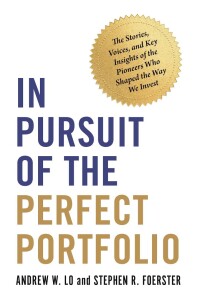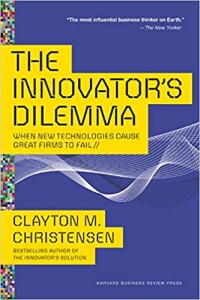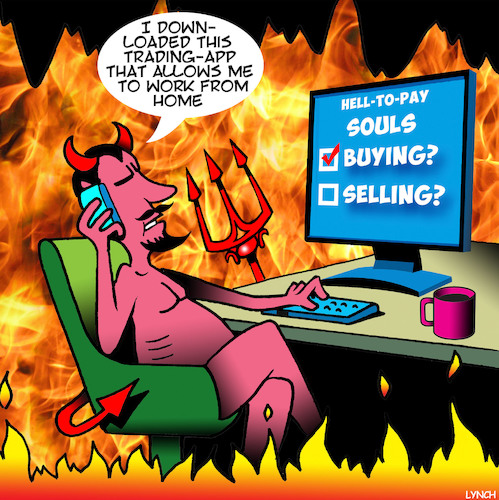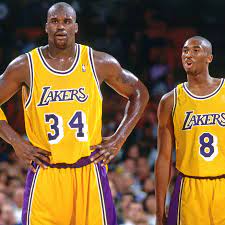Have you been following the market frenzy around stocks for GameStop, AMC and Bed Bath & Beyond? Or the news on Wall Street Bets and Robinhood? How disruptive are these events for traditional valuation methods? What new factors must be considered when investing and allocating capital?
Recent shifts in market dynamics have altered the perception of capital markets in meaningful ways. On April 8, 2021, the Corporate Finance Committee of the CFA Society of Toronto convened a panel of experts to discuss the reasons market valuations are so out of synch with fundamental analysis.
Moderator Stephen Foerster, Professor of Finance at Ivey Business School, kicked things off with a summary of the history of fundamental analysis, going back to the South Sea Islands bubble, through the Graham & Dodd valuation period, and into the capital asset pricing models (CAPM) of the 1960s. “But not much has changed since the 1990s,” he said. Foerster is the co-author of In Pursuit of the Perfect Portfolio (Princeton University Press, May 2021).

“Fundamental analysis is not dead,” said Jennifer Radman, “it’s just in hibernation.” She is Head of Investments & Senior Portfolio Manager at Caldwell Investment Management. She argued for the continued existence of discounted cash flow methods (DCF). She said the main purpose of owning a company is to “generate a return through cash flow”—or to sell the company, “but even so, the buyer is still looking at the company’s cash flow.”
“There are pockets of time when fundamental analysis seems not to matter,” said Bruce Campbell, Founder and Portfolio Manager at Stone Castle Investment Management. “Right now we are in a quiescent phase.”
The contrarian was Graeme Moffat, Chief Scientist, Start-up founder, & Senior Fellow at Munk School of Global Affairs who said, “Fundamental analysis has failed to adapt… Markets are distributed now as winner-take-all.” With many recent cases of non-linear growth, “it’s very difficult to calculate a forward valuation.” Cases like the Reddit discussion forum having an influence on the market show that the financial community must take behavioral finance into account. He quoted one Reddit user who said, “we can stay stupid longer than hedge funds can stay solvent.” [This is a restatement of what Gary Shilling once wrote: “the stock market can remain irrational a lot longer than you can remain solvent.”]
Valuation can be difficult, particularly for new markets, Foerster noted. This indicates valuation of such things as cannabis stocks is especially prone to volatility. Campbell agreed: “You can apply the DCF model but historical valuation is tough.”
Moffat believes that the growing importance of intangible assets (such as patents or brands) has also played a role in some of the big economic changes of the last decade. “Cryptocurrencies are the ultimate intangible,” he said.
He urged the audience to read the book Capitalism Without Capital by Jonathan Haskel and Stian Westlake to understand the “huge network effects” in the new economy. “You have to think like a venture capitalist, not a fundamental analyst.”
Foerster had another book to suggest. The Innovators’ Dilemma by Clayton M. Christensen splits start- up risk into two parts: technology risk, which can’t be treated with fundamental analysis, and execution risk, which can. He posed the question: what does today’s successful investor look for?
“My firm is a bottom-up investor,” Radman said. “We look for positive rating stories. Historically, the ratings drivers are company-specific.” She asks where and how markets allocate risk. They split risk into “multiples risk” and “earnings risk.”
“Is value investing going out of style?” Foerster asked the panellists.
The big difference between the days of Graham & Dodd value investing and nowadays, Radman noted, is technology. “Anybody can go online and trade.”
Campbell agreed that technology has made it easy for the ordinary investor to screen companies according to their fundamental numbers, “but you need to find the catalyst for companies to grow.”
Moffat said that he had played along with the GameStop and Roaring Kitty trade manias. “This won’t be the end. It’s a combination of luck, mania, and gambling.” He drew an analogy to the advent of digital photography. When everyone could take high-quality pictures, “the business model of photography had to change—but there was more demand for high quality pictures, too.”
Radman said she refused to recommend GameStop stock investments to clients on the verge of retirement. Most GameStop investors were retail buyers who were not about to retire. A recent survey by Deutschebank found that 40 percent of recipients of stimulus checks intended to put their money in the stock market.
Foerster asked, “Do we need to save retail investors from themselves?”
Campbell did not want to see any more regulation of retail trading. “There will be an ebb and flow of expertise—and hubris—then, others will take over.” He reminded the audience of the Nortel bubble, when “new investors didn’t understand Nortel valuation; they just saw the price was going up and up.”
SPACs
“Is there a need for regulating SPACs?” Foerster asked. A special purpose acquisition company (SPAC) is a shell corporation listed on a stock exchange with the purpose of acquiring a private company, thus making it public without going through the traditional initial public offering (IPO) process. A SPAC is also known as a “blank check company.” Over 60 sports-related SPACs have been set up, many of them tied to celebrities or loyalty to teams. Seventy percent of IPOs now involved SPACs.
“We see big moves in the first few days of a SPAC IPO,” Campbell said, “but market inefficiencies are quickly discovered.”
“SPACs have become popular for tech companies,” Moffat said, “but they originated in Canadian mining stocks,” which developed this model. He was against further regulation for the retail investor: “If someone wants to invest in Shaquille O’Neal’s SPAC, why should we stop him?”
Radman said her rule of thumb was, “if you’re using your own money you can go nuts” but you must never treat others’ money so cavalierly. ♠️





